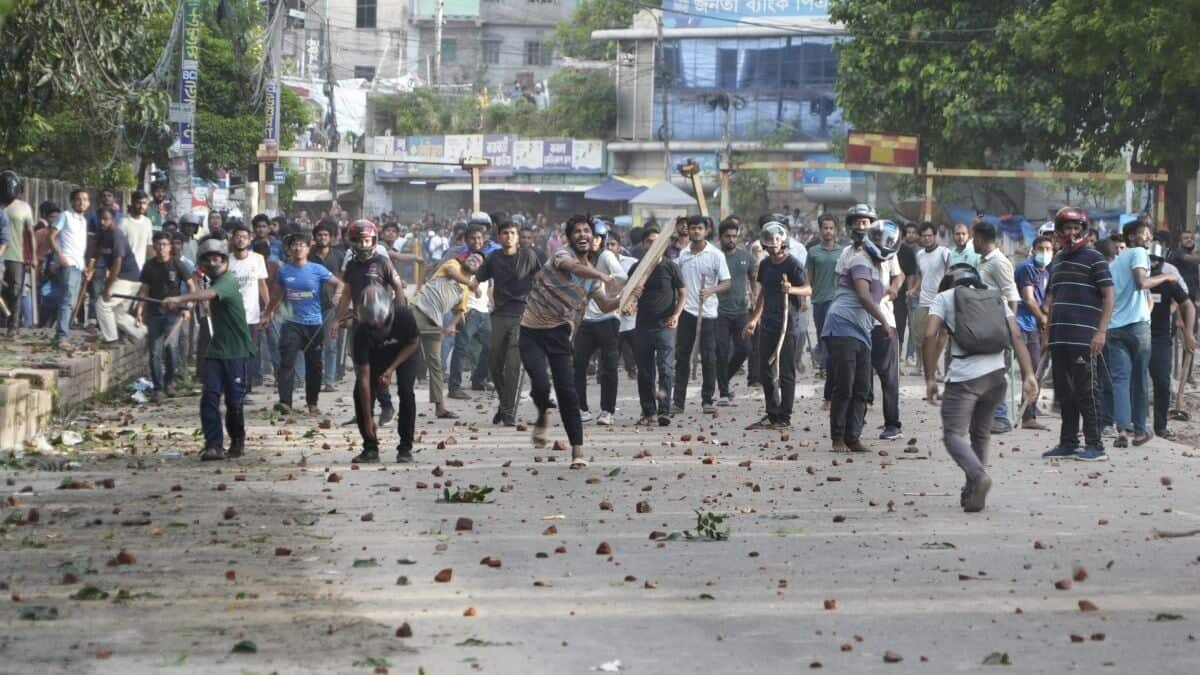
Why thousands of Bangladeshi students are protesting against government
What's the story
Bangladesh is currently experiencing violent student protests that have led to the indefinite closure of public and private universities nationwide. The unrest, which has resulted in at least six deaths and hundreds of injuries, was sparked by a court order reinstating a 30% government job quota for descendants of those who fought in the country's 1971 war of independence. The demonstrations began on July 1, as thousands fear being deprived of opportunities due to the quota system.
Protest goals
Students demand abolition of quota for war veterans' descendants
Students from both government and private universities are protesting against the reinstated quota system. Nahid Islam, the coordinator of the anti-quota protests, clarified their stance to Reuters, stating, "We are not against the quota system in general, but we want the 30% quota for the descendants of 1971 freedom fighters to be abolished." The protesters argue that this specific quota is discriminatory and advocate for its replacement with a merit-based system.
Concerns raised
Protesters question accuracy of veterans' family list
Protesters have also voiced concerns about the accuracy of the list of veterans' families, fearing that some might unfairly benefit from this provision. They claim that it benefits supporters of Prime Minister Sheikh Hasina's Awami League party, which led the independence movement. This quota system was abolished in 2018 by Hasina following widespread protests but was reinstated recently by a court order declaring its abolition illegal.
Escalation
Prime minister's remarks ignite further unrest
The violence escalated on Sunday when Hasina made comments during a press conference that were perceived as demeaning by student protesters. She asked, "If the grandchildren of freedom fighters do not receive [quota] benefits, who would get it? The grandchildren of Razakars?" "Razakar" is a derogatory term in Bangladesh, referring to those who collaborated with the Pakistani military during the 1971 Liberation War.
Violence
Clashes break out, leaving over 100 students injured
Following the prime minister's comments, clashes broke out at Dhaka University between protesters and members of the student wing of the ruling Awami League party, the Bangladesh Chhatra League (BCL), leaving more than 100 students injured. The violence spread to Jahangir Nagar University in Savar, outside Dhaka, and other parts of the country. Witnesses report that demonstrators were attacked by BCL activists and police.
Confrontation
400,000 graduates take the civil service exam annually
As of Wednesday, at least six people had died in violent protests over the allocation of government jobs. While work prospects have increased in Bangladesh's private sector, many people prefer government jobs since they are considered steady and well-paying. Every year, over 400,000 graduates take the civil service exam to compete for 3,000 of these jobs. Last week, the Supreme Court suspended the high court's order for four weeks, but the student protests continued.